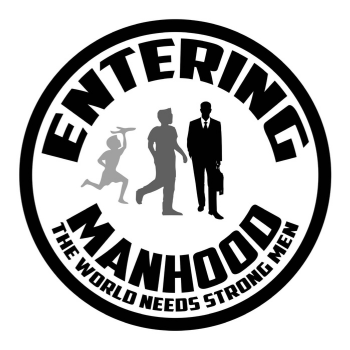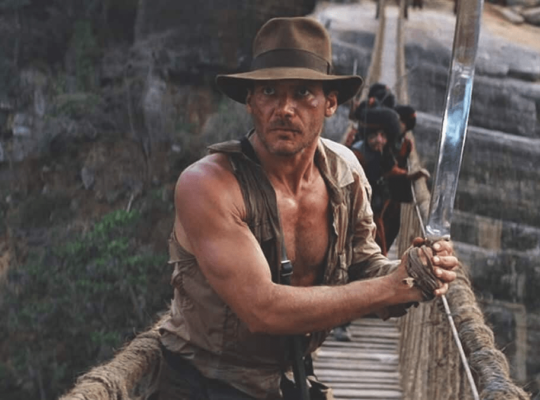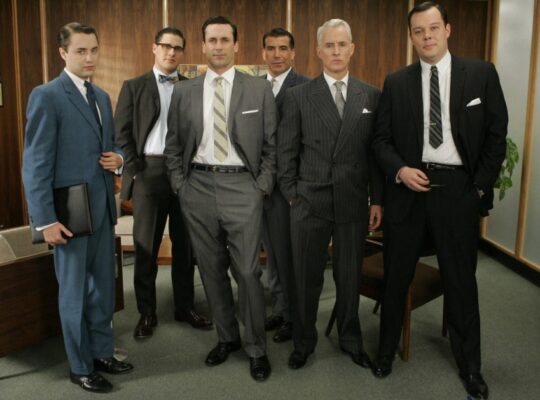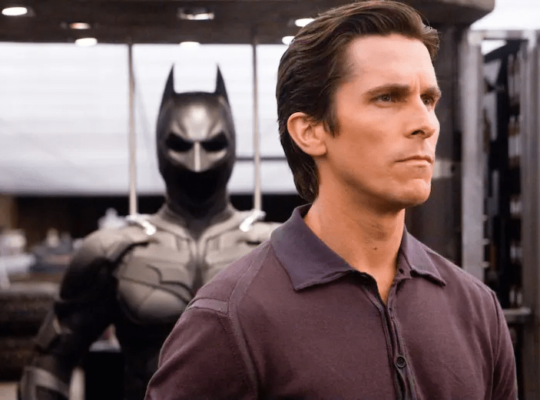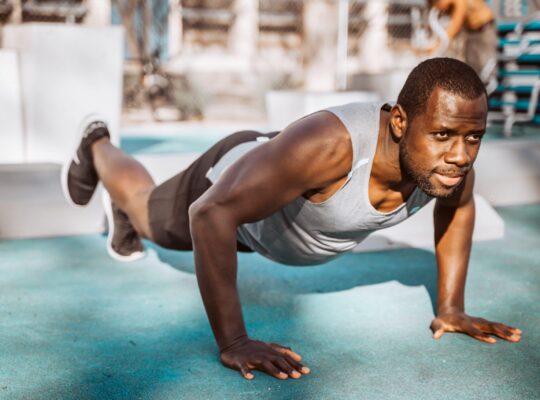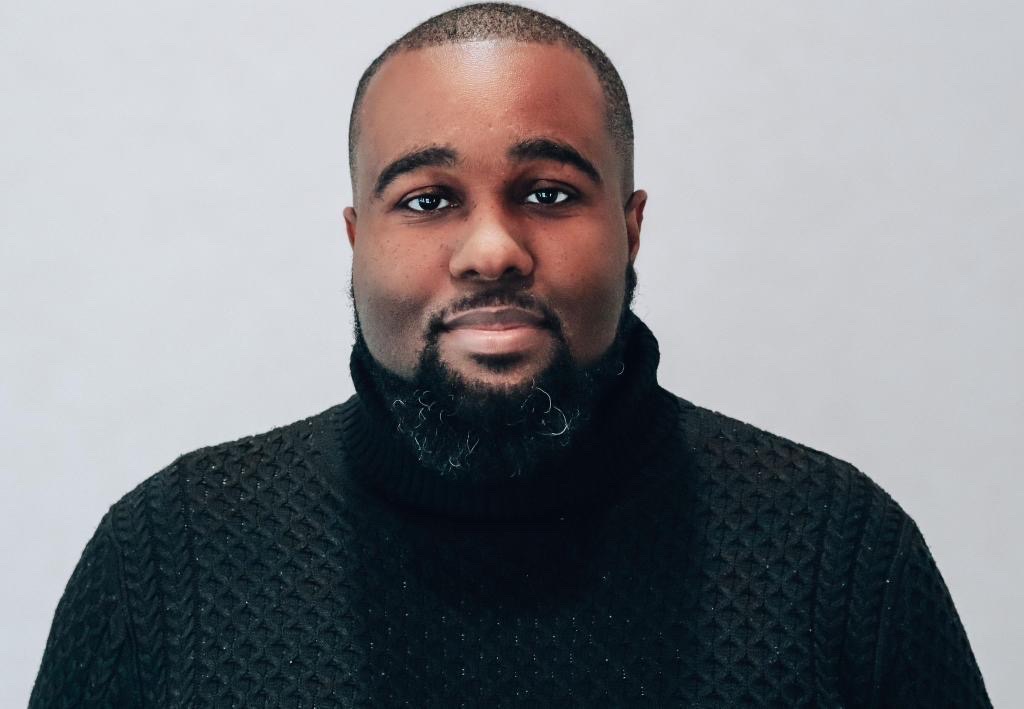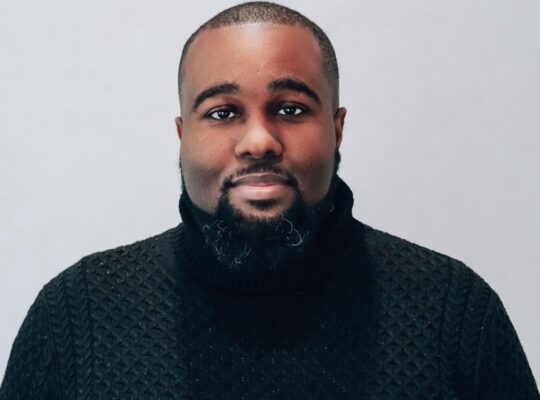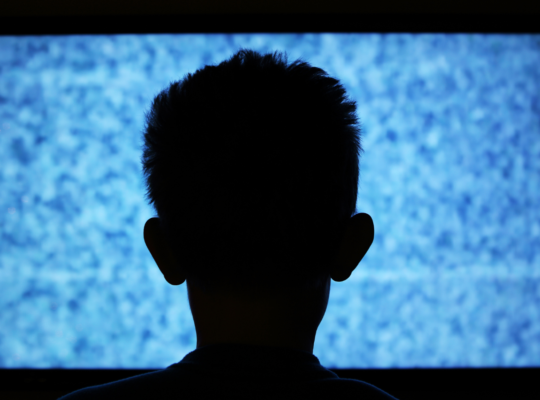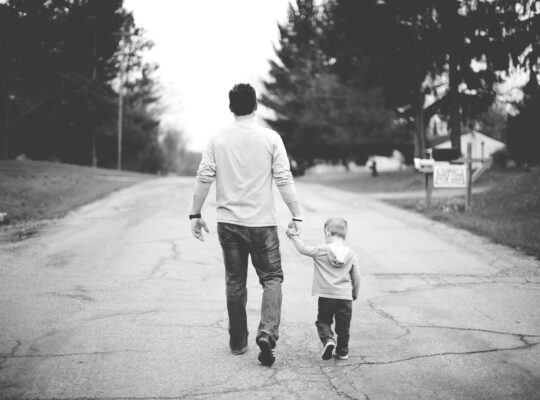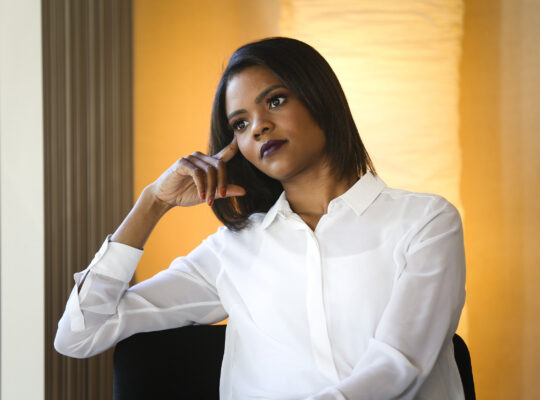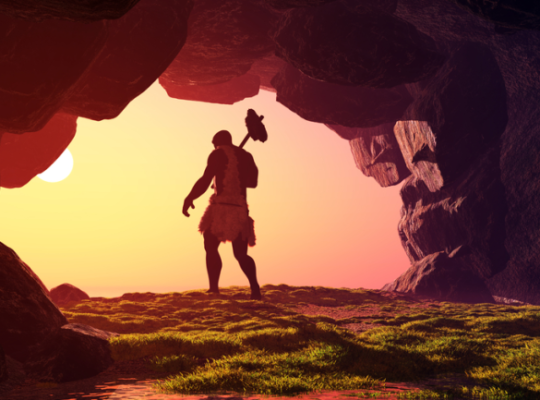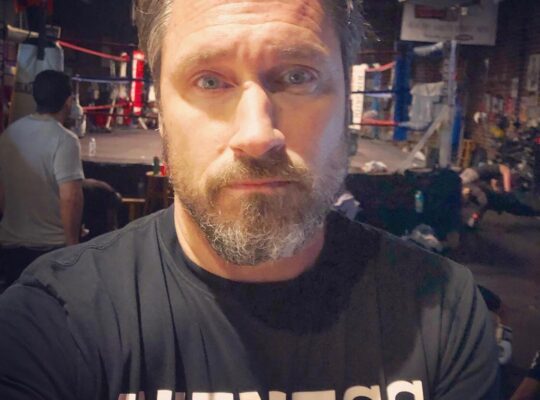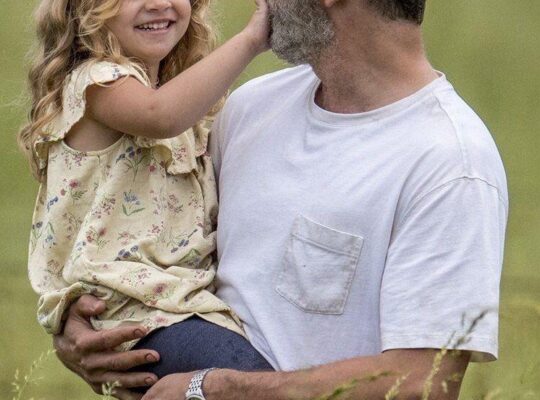Last week I sat down with Adam B. Coleman, the author of Black Victim to Black Victor, to discuss the plight of fatherless homes in America. Adam has been a consistent contributor to the NY Post recently, writing eye opening pieces on controversial topics such as BLM, feminism and critical race theory. After the horrific events at the Robb Elementary school in Uvalde, Texas, Adam composed a piece examining a significant factor which is usually overlooked in mass shootings: the aspect of fatherlessness. I was blown away, and reached out for an interview.
Enteringmanhood: Before we dig into the NY Post article, what inspired you to start writing?
Adam B. Coleman: Well, the first thing I started writing was actually the book. I was mostly inspired to write because I was looking for an outlet to express my frustration with George Floyd and all that stuff. So you know, the book discusses race, but race is one layer of it. But there’s a lot of different core principles. the chapters that are those of the largest are talking about relationships, as far as family relationships, feminism and the impact on families. So families are a big piece of the book. I tell very personal stories about what it was like for me as a young man to grow up without my father. Just asking certain questions and expressing how I truly felt because I don’t feel like a lot of kids who went through my situation get an outlet to say how they really feel and what they really want to say. It’s really easy to criticize a deadbeat dad, but actually, like, criticize their mom, you know, and ask like why, why did this happen? So that was how I first started writing was actually the book itself. I had been wanting to write a book for a little bit, maybe like a year or so but I had no idea what to write about. George Floyd happened. And it wasn’t just like, right away. It was more of a you know, I was looking online for outlets to express myself. I felt like social media wasn’t the place for me to do it. I wasn’t active on Twitter at the time. So I went on to free speech forms. And you know, I just asked the question, “Am I the only one that sees what’s going on here? Like, am I the only one that’s that’s understanding this?” They’re like, “No, we see it too. We get it.”
And I just had an outlet to express myself and people just started reaching out saying you should write more. “I like how you explained yourself and how you said this, you should write”. One day I was like, This is it. This is the book and I just started writing from there. It took me about I think from start to finish, you know, with all the editing I think it was about eight and a half nine months before I published it myself.
Entering Manhood: So you were frustrated by what you were seeing. You didn’t feel like you were being heard. You took it to social media and then decided to write a book. Obviously, the book covers a lot of topics. Let’s get right to it. So what’s the biggest challenge facing the modern male?
Adam B. Coleman: The biggest challenge? Well, we have (despite demographic) more and more young men who are growing up without either their father or an engaged father because they’ve been weakened as well. Or they’ve been growing up in a society that is constantly questioning their existence, pushing their behavior, altering their temperament, their emotions. And, you know, there is a level of feminization that is happening. I’m not one of these people who thinks that we should have this hyper patriarchal, masculine society. I think, much like everything else in society or in life, you should have some sort of balance. There’s a lack of balance as to what’s going on.
And I kind of see, like in your situation, you have your family, right. Your life is a lot different than when you’re by yourself as a single man, right? You acted a particular way, and then you are introduced to a woman that you love, and she kind of softens you in certain ways. you become hardened about other particular things. your instincts kick in, you know, protection and all these different things. And so, you have a balance between the two, right? So you don’t have to be this big macho guy by yourself who’s looking out for only himself. Now you can, you can lower it and be more focused on things that you actually need to be masculine about. And so what I’m seeing is a society that has basically gone on the incline of just feminine energy, female oriented incentives and it’s just way off balance. In Some cases, it’s created by narcissistic women. And some, women are very confused with it all, i was having a conversation with a female friend of mine, and I was telling her one of the biggest problems that women have is that they get if they get advice about men from women. You know, no one ever asks us how we feel or whatever as for our perspective of how we see things, so when I do have these conversations with women, and they’re open to these conversations they’re like, “that makes a lot of sense”. And I’m like, now imagine this is just one conversation and you know, in a matter of 30 minutes, I can give clarity. Imagine what it’d be like if we listened to men more often. It didn’t just discard how we felt, or, you know, gave us an avenue to actually say how we feel that is different than what women think, and not have that be seen as mansplaining or a bad thing. I think there needs to be more of a balance in our society. I think that’s that’s been one of the most detrimental things and it’s affecting boys.
Entering Manhood: What’s the driving force behind masculinity being either demonized or devalued?
Adam B. Coleman: Aspects of feminism. Number one thing, and in the book, it’s somewhat related to race, but there are times that I’m actually not referencing race. I’m just talking in very general terms, because it’s cross demographic. It’s affecting Black relationships and things of that nature. But it’s across demographic, it’s happening all over the place. Feminism is so pervasive that there are women who behave and sound and act just like feminists and they have no idea that they’re feminists. It you would ask them “Are you a feminist?” They would probably say “no I’m not feminist”. You know, the words that you’re using, the phrases, that everything is much of the feminist mold. And this has become extremely detrimental. I think, for relationships between men and women.
And that’s what’s leading to the downfall. I actually just published an article today in The New York Post, because even Democrat men are souring on feminism. One of the questions was do you think feminism has gone too far? And, you know, it was like 44% agreed, and it was like 41% disagreed. So, even for them, the party that you think associated with feminism and agrees with it… The younger democratic men are souring on it. And I think it’s because of relationships.
As much as they want to be liberal or progressives, they’re looking at feminism affecting their relationships, affecting the women they encounter and you know, as liberal as they want to be about social issues and things like that, they still ultimately have to come back to dating women, or having a relationship or marrying a woman. And I think one of the biggest problems when it comes to our relationships between men and women is that mantra of the feminists.
The “I’m an independent woman” or “I do what I want” mentality sees men as optional. And so because they see men as optional, they go and make babies with men, and they can just do whatever they want. And they think that there’s no repercussions.
You know, I can’t remember who exactly it was. But someone said, you know, a lot of women, especially single mothers are out there. They think that they are raising kids but they’re maintaining them, right?
But where are they? They’re not raising them and some of them could try and be of good intentions, but they got to work, where they set up themselves to be in a predicament where they have to be away from their kids. They have to offload them to somebody else to raise them. And then when they’re old enough, they can offload them into school. So they can be there and the teachers can babysit them. And meanwhile, the women are working one or two jobs to make ends meet. That’s the society that that we’re building. And that is the the feminist led society that we’re existing in. And in some ways, that’s my childhood.
Entering Manhood: So for you, I’m sure you’re going to get this question if you haven’t already, because obviously you are successful, and you have a voice, but you didn’t grow up with a father. So how did that work?
Adam B. Coleman: Lots and lots and lots of struggle. So even before I was an adult, we were homeless twice. And we moved around a lot. I lived in four states before I was 18. I’m from New Jersey, but I lived in five states. I moved to Tennessee for about a year as an adult and then came back to New Jersey and even within New Jersey as an adult I moved just about every year. I think I’ve lived in five or six counties in New Jersey. So much of my life has been pretty unstable and not feeling like I had any particular home. So, you know, having to deal with sudden unemployment because I got fired from a job. Going from making good money to making half the amount of money to having my car repossessed and having to move back home. You know, you name it. I had to go through all these different situations. But the common denominator was that I never gave up.
I struggled and I suffered. But when I needed to get help, I got help. One particular time I was suffering from panic attacks at work. Then I was on short term disability. I was out a lot and it turned into a phobia where I was afraid to go outside. So then I saw a therapist and the therapy opened up a lot of wounds and things that I wasn’t addressing. And I got help that way. So, I’ve been to therapy a couple times in my life. And it really helped. It really helped me to become more introspective and understanding of myself and figuring things out. But along the way, it’s just struggle, struggle, struggle. You feel like you’re making headway and then you’re right back down again and you’ve got to start all over. I’ve had a wonderful past five years. My career finally took off. My son’s always been good. As I’m going through all this struggle, I’m trying to raise my son. I’m trying to be involved in his life. You know, and I don’t you might ask me this at some point, but because people always ask me, how, how were you able to be a father when you didn’t have a father?
I’m always thinking about my son in his future, and that is because I just didn’t want to be my father. I didn’t know what it was like to be a man. I didn’t know what it was like to be a father. I didn’t have an example of a father to mimic from, and in some ways that kind of helped me to figure out my own way of being a father. So there, you know, in the beginning, I might have done stuff that I didn’t really like doing, like I didn’t like spanking my son, so one day I just made the decision. I’m not going to do it anymore. And I’m gonna figure out another way of doing it. From that point on, I’ve never put a hand on my son, because it was unnecessary and I felt like it was counterproductive to getting what I want. I don’t want to hurt my son. And I don’t want to take my frustration out on him. And that’s what it felt like when I would spank him. So it’s just things like that, that I was able to figure out for myself and be introspective and kind of grow from there. So I think I answered your question
Entering Manhood: What do you wish you had in a dad? If there was one thing to pull from that, what would it have been?
Adam B. Coleman: I struggled a lot with confidence. You know, I was depressed and self loathing and things like that as a kid, and it carried over into my adulthood because sometimes you know people have thoughts of suicide and you know, and just on top of thi I didn’t have anybody to lean on to reassure me, you know, to to help guide me, right. And so when it comes to my son, I’m always asking how are you doing? How are you feeling? Are you okay? I established a relationship with him where I tell him all the time “You can ask me anything. You can tell me anything. I’m not going to judge you. If you mess up telling me so we can figure it out. We can go from there.” If you have any questions, ask me. I want to establish a relationship where he feels comfortable enough to tell me when he’s not feeling good about something where he’s feeling insecure. And he’s done that, right. You know, he’s a kid. He’s actually admitted that he’s afraid to disappoint me. I’m like, you don’t have to worry about that. And then finally, he’ll open up, it’ll tell me exactly what’s going on. And we talk about it. I didn’t have that. And so, you know, emotionally. I look at my son, I see where he’s at. I’m pretty stoic. Just kind of naturally, he’s even more so. You know, extremely polite and rational. And when he has those moments, he knows he can call me right? He knows he can call me proud. Father wants me, he just got his first job.
At first he was trying to fill up the job application. He sent me a screenshot and he’s like, “how does this work before I send it?” And so you know, I give him my two cents and stuff like that. I could joke with him and say like, why don’t you put that and you know, change this and we’ll joke around. But you know, it’s stuff like that. When you ask what I wish I had, I wish I had my father to kind of call when I was feeling down or unsure if I had girl questions, or stuff like that.
Entering Manhood: How important is the father in a boy’s life? Are they the most important person?
Adam B. Coleman: Absolutely. Without a doubt, you know, from a childhood development standpoint, the same sex parent is the most important parent right? You have the most contact with the child throughout their life. So if you have both parents in the house, so you have a son, the son is naturally going to mimic behaviors of the Father, and he may actually mimic certain things from the mother as well. But you’re going to be of the highest influence as a father. What I noticed actually from myself by not having my father and when, as I got older, and I really started looking at myself and things I was doing, there were certain things I was mimicking that were more feminine. You know, and it’s like, mimicking my mom, or, you know, things of that nature. I’m picking up from here and there. And that was something I had to realize and I had to unlearn it, or at least recognize when I’m behaving this particular thinking this particular way.
So it’s incredibly important, because you want to show your child what healthy masculinity looks like. And without that, that’s when they become susceptible to adapting to whatever comes into their direction, whether it be a friend who has a bad influence, whether it be a mother who is distracted, and doing whatever, whether it be a gang that’s outside, right, they’re going to look for some sort of influence, because all you know as human beings, all we do is just sponge, you know, we, we absorb whatever we come in contact with. So we want our boys to absorb a healthy, masculine approach to life. Especially because without that, I’ve noticed that young men become very insecure. That they become imbalanced, like we talked about having some sort of balance, they become very imbalanced.
And because of our potential size and strength, we can be incredibly destructive. And you know, when you have young men who have no guidance, who have no instruction, we don’t know how to handle their weapon as their body and they’re frustrated. And, you know, they’re going to hurt people.
You know, so that’s why I wrote that article. Talking about this young man who basically just had enough and he became homicidal and suicidal. And this is the outlet and he had the capability of violence. Because of what we’re made out of, we are more prone to being violent. And so that’s why, with my son . it was incredibly important for me to raise him right. Young men want to, you know, go around and stuff like that, and that’s normal. But as a teacher, there are moments for that. You know, you have to not always be cold, but you have to find ways to learn how to be calm because there’s gonna be times where you’re under pressure. And it’s in those types of situations that you are really important. And I don’t think most women understand these things. They don’t understand what it’s like to be a young man who has a lot of energy, but doesn’t know how to direct it. They don’t understand these aspects. And it’s not because they’re malicious. They just don’t understand. Just like, I don’t understand what it’s like to be a woman. I don’t know what it’s like emotionally to go through puberty as a young woman. I don’t and so this is why it’s incredibly important for the people who created you to instruct you, because they’re the ones who are going to love you potentially the most in your life.
Entering Manhood: So the Uvalde shooter’s father had to come out in the press and expressed some regret that he wasn’t as involved in his son’s life as he should have been. You know, your New York Post article kind of hit the nail on the head. Why does the media dig into this more? Why are they always quick to blame it on something else?
Adam B. Coleman: Because there’s not a political angle to find those things. You know, how do you fix fatherlessness? Yeah, I mean, ultimately you can’t, you can’t write a bill. The President can’t say something, and then everybody just starts doing it. You can’t force men to be involved in their kids’ lives. You can’t force women to choose better. Choose better fathers. You can’t force people to do these things. Yep. So there is no governmental solution right. So this has to be a culture of solution. And culture changes, but slowly…
So the reason why we always go for the gun or go for certain times white supremacy or whatever they want to tell the narrative. It depends who does it, but there’s no way of immediately fixing it. Right there. That’s why they don’t talk about it. That’s one of the reasons why they don’t talk about it. They also don’t talk about it because they have other agendas that they wanted to discuss. From the media standpoint. You know, fatherlessness is sensational like it’s everything is talking about guns as you know, that’s always a topic to discuss like the Second Amendment, all this other stuff. So that’s one of the reasons, and the other reason is feminism.
Trying to be critical of the family structure is seen as an attack on women. It’s seen as an attack on Mothers, which is why it’s one of the hardest things to discuss on a public scale when it comes to single motherhood because they immediately take it as you’re attacking the mother. When we’re not, we’re talking about the importance of the father. But that’s how it’s translated.
And you know what, to be fair, sometimes, yeah, we need to be critical of the mother. Right? Because it does take too much and so, if we can’t be critical of the mother yet we can say we didn’t eat all day long. And that sounds nothing as well. relationships don’t work out, stuff happens. And when I talk about single parenthood, I’m not talking about when we got married, got divorce stuff happens, right, but at least they tried to do it right. What I’m talking about is people who just have children and have never been married. Lot of times they don’t really have a relationship, they don’t have a really solid, solid foundation, or a lot of times even any interest in marriage, right. They’re kind of just moving about life.
Whatever happens happens, and they bought into the idea that I could do it by myself. And listen, you know, I grew up in that household. I saw what it was like for my mom, you know?
Watching my mom work two jobs, I don’t think that was empowering my mother. It’s not empowering my mother to go into a homeless shelter. These concepts of female empowerment. By using their children in just taking them away from their fathers and doing whatever they want. That somehow female empowerment. And we just were just okay with that. But statistically speaking, they’re poor.
And that’s, that’s the other thing that we don’t really talk about, especially, you know, we’re in an age where two incomes is necessary, a lot of times. So, you have one income and a two income economy. They’re poor. And that’s something that you know, we’re not really allowed to talk about too much. They’re in poverty and they like to help. They like a whole lot of women who made it and Uber actually makes above average money. But, you know, if you’re using the black community, black women make less than the average black man makes 40,000 She makes less than 40,000. You know, and so, she’s making less than that. And that tells you what kind of environment the children are being raised and how much is she able to save for the future? She probably can’t. So she has equity in the house if she wants to buy a home, so she’s renting. So you have all these different things that affect kids economically.
I’m kind of veering off a little bit, but you know, I think we don’t talk about fatherlessness and the importance of it. For those reasons, there’s no political angle. You know, the president can’t run an executive order to fix fatherlessness. It’s not sensational enough to get people riled up to talk about it. It’s actually a very emotional thing. I don’t think the media understands it. There’s definitely Hollywood and there’s TV and all that there’s entertainment, and what’s politically correct from that angle, but the average person would agree with what we’re saying.
You know what, they’re the ones who control the narrative. They’re the ones who control the media, the imagery of the TV shows and all these different things and and the more you’re exposed to it, the more you start to believe it, you start to think and you start to accept it. When I was a kid, being a single parent, it was like it happens, but we wouldn’t get to say like, that’s the best thing to do.
And now it’s just like she’s living her life. Just let it happen. And we’re just cool with it. There’s no more shame when it comes to family. And we’ve gone 100% allowing women to do whatever they want when it comes to raising children and never shaming them when it comes to the bullshit, right? But instantly if you step out like my dad, my dad wasn’t there.
I know my father wasn’t there. He was never going to be there. He was married to another woman. I know there are men who are trying and I recognize that there are men who are like my father. I felt it was difficult for myself and my sister. But why did my mother put us in that situation? I think that’s a fair assessment. There are two people who are involved in this. And she knew he was married. I think that’s a fair criticism.
So when I write an article, like the one that you read in the NY Post, I get a lot of people to reach out to me privately, because they’re like, “that was me”. You know, they have stories about missing their fathers. It’s a very, very emotional thing. And these are average people. These are just regular Americans who understand this. I feel like I’m one of the few people who actually say it. And I think that was why I felt it was really important for me to write my book is because I went through it. We have all these people who have their advocacies for different things that they’ve gone through as a survivor of this. Now they’re advocates for it. And there’s not a lot of people who are in my position who are trying to advocate for families, because I don’t want more boys to be like me and what I went through.
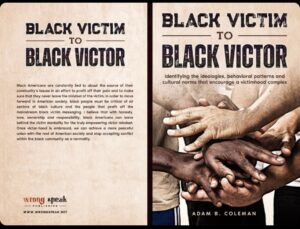
Entering Manhood: So what does that look like for you? How do you create change?
Adam B. Coleman: In some cases, if it’s speaking engagements, going to people and talking to them, being a voice to people who aren’t able to maybe to articulate you know how they’re feeling like I’ve had, I’ve had people reach out to me like you said exactly like how I’m feeling but I can’t articulate it the way that you can
So, that’s been a huge blessing for me and that’s why I don’t take any of this lightly. I don’t I don’t have any high expectations or anything like that. I just want to do something. And I remember watching Tim Poole. But I remember as I was writing the book, and just like, actually things before we bought but I remember him saying like, basically like, you’re not gonna do something. Do something about it. Yeah, I remember thinking that I should do something about it. You know, well, like what can I do? And when I had that moment, I was just like, I gotta do something about it. You know? So for me, you know, I had zero public profile. I don’t even want to tell any of my friends or family how I thought about politics and my policies were slowly changing and changing. I kept it all to myself. And I had to get to a point where I said if I’m gonna do this, to open myself up, right, I have to be extremely vulnerable, but I have to be true to myself. So I have to do this to prepare myself for this. So that’s, that’s the position that I’m in today, where I’m open for criticisms. If people want to criticize but at the same time, I don’t really care.
Because none of this is about chasing a career or chasing this. It’s far more important to speak for people who aren’t able to speak for themselves to advocate for families to talk about why this is detrimental. Right? Not just saying in a slanderous way and making women feel bad about decisions or anything like that or Benfield for the decisions or lack of involvement, whatever, but talk about it in a way that it’s not about you it’s about the kids.
And that’s what really frustrates me because all of this always comes back to the mother and the father and the mother and father. And the CO parents did not go by Oh, he did this. She did that. It’s his because they’re stuck in the middle and they have no say and, you know, that’s one of those things. I don’t know how much impact that can have on people who have children we’re already in a situation. But if younger men are reading my book, if uncles are giving the boys my book, or even giving my daughter’s Yep, my book so they understand what it’s like for a child to go through this particular situation. Because even though I was born in Detroit, I loved Detroit around the age of five when my mom stayed in Detroit. I could almost guarantee I’ve used statistical stuff. And because I know myself, I know how vulnerable I was. I know how highly influential it is to do certain things.
And so I know that but thankfully my mom left Detroit in two different places, but we got out of a very toxic environment in the 1980s that I could have easily gotten caught up into stuff, and you would never hear about me. So, you know, I think it’s incredibly important. To try and catch the younger boys and girls so they understand that your mom, that generation, sometimes messed up and they were doing this, how did that turn out for them? Do you want to be just like them? You know? Like really ask yourself, we have like, we live in the information age, they have all this information available to them. Now they’re being critical. Now they’re saying, I don’t know if I really want to be on this feminist training. I don’t know if I want to do this whole thing. They’re looking at gender roles more seriously. They’re looking at certain things and kind of fortunate so as much as we talk about the world, there’s actually a little bit of a counterculture saying is this left progressive view of the world where the men are weak and the women have all the say, is that really the best way to go or what a more balanced environment, a more ideal?
So that’s my hope, my hope is that my book, or my articles, or whatever I write or speak in a podcast, basically to someone who can ultimately make it to the younger generation. So they can start to change the culture because ultimately, how we fix fatherlessness basically has to start with the next generation. And there has to be a cultural shift.
Entering Manhood: A lot of things you’re talking about align really closely with Larry Elder. He’s been talking about this problem for decades. Have you reached out to him at all?
Adam B. Coleman: I’ve tried. Especially like in the very beginning when the book came out, but haven’t had any success.
Entering Manhood: So are you like aligning with anyone else to kind of reach the masses or do you have an influencer strategy in place or anything like that?
Adam B. Coleman: Basically, anyone and everyone that I could come in contact with. You know, I’ve been extremely fortunate from a standpoint like I said, zero public presence to you know, the other week I passed 30,000 followers on Twitter. And it’s surprising that it’s difficult to kind of do that, basically a year and get people’s attention. I feel like I’ve written in the New York Post every week for the past like four or five weeks and getting editors’ attention and meeting certain people. I was on Fox News and Fox and Friends for one of my articles, talking about my son when it comes to college. So, having these different opportunities pop up here and there I’m kind of just taking it as it comes.
I feel that God has blessed me. And he’s put certain people in my life and he’s removed certain people in my life to keep me moving forward because I have a greater purpose when it comes to this stuff. Trying to help people to help people, and trying to help people express themselves. I’m trying to advocate for families. We’re trying to do all these different things. And I think ultimately, I’ll align with anybody who feels the way that I do. I have no interest in debating people nor becoming some TV pundit. It’s not about making some sort of career. Obviously, I get paid to do certain things. A lot of that gets reinvested.
But it’s about the message you know, my book costs $13. I could have charged $20 or $25 for it. Because I want people like us to buy it. I want them to share with people because it’s ultimately about the message that’s in that book, and giving away so many copies of the book because I care about the message., I think about this a lot. I went to Arizona and this little girl was there. And I signed the copy and gave it to her. And everything was like 20 minutes later. She was coming around for mom again. She’s like, your book is so good. It’s awesome. She’s like she’s already into it. I was like here, take another copy. You know for whom I like to take this copy and give it to them and it’s great so much. Stuff like that. Like, I don’t care about the 50 bucks. It cost me four bucks to print it here. Give it to a friend because it’s about the message. If that will make it someone else’s hands and make them push it about how they move on in life when it comes to creating a family. Because family means so much to me. And how impactful it is. Like if it makes them question and it came from this book. That’s if even if it was just like one person who was like wow, I never thought of it like that. Maybe I need to change how I move than it was worth it
Entering Manhood: How can we help?
Adam B. Coleman: Tell people about the book. I tried to do everything I can to advocate for families. I do occasionally talk about race and politics. But I will try my best to write about relationships, interactions, family, children, and I try my best to advocate for children. So that’s why most of my tweets aren’t really hyper political, most of them most of the time. I’m talking about my son talking about family and the importance of it, or protecting children, especially all the things that are going on today. So yeah, if you could tell people about the book. There’s a huge message within it.
Starting with family, we’re going into other principles, talking about morality, and how important it is to have some sort of moral conscience. And obviously the book does touch upon race. But you know, one person told me, you may not realize it, but you wrote a really good self help book.
I wrote in a way that you can replace Black with whatever. And you can understand that there’s a deeper point that I’m trying to make. And I’ve had people from other countries contact me and be like, “That’s my community.” And I felt that people felt the emotion of the book. And I just got the message. I’m saying this, this is beyond America. This is in the West, this goes to other places as well, dealing with the same type of thing.
So there’s a deeper message within it so that’s why I say that you know, if I see one person bought the book today, I’m like, Cool. One more person bought the book. So yeah, that’s how you can help people. Talk about the book and get them to read it and understand the message.
Adam’s book “Black Victim to Black Victor” is available here on the Amazon store. For signed copies, visit Adam’s site.
Adam B. Coleman is the author of “Black Victim To Black Victor” and founder of Wrong Speak Publishing.
